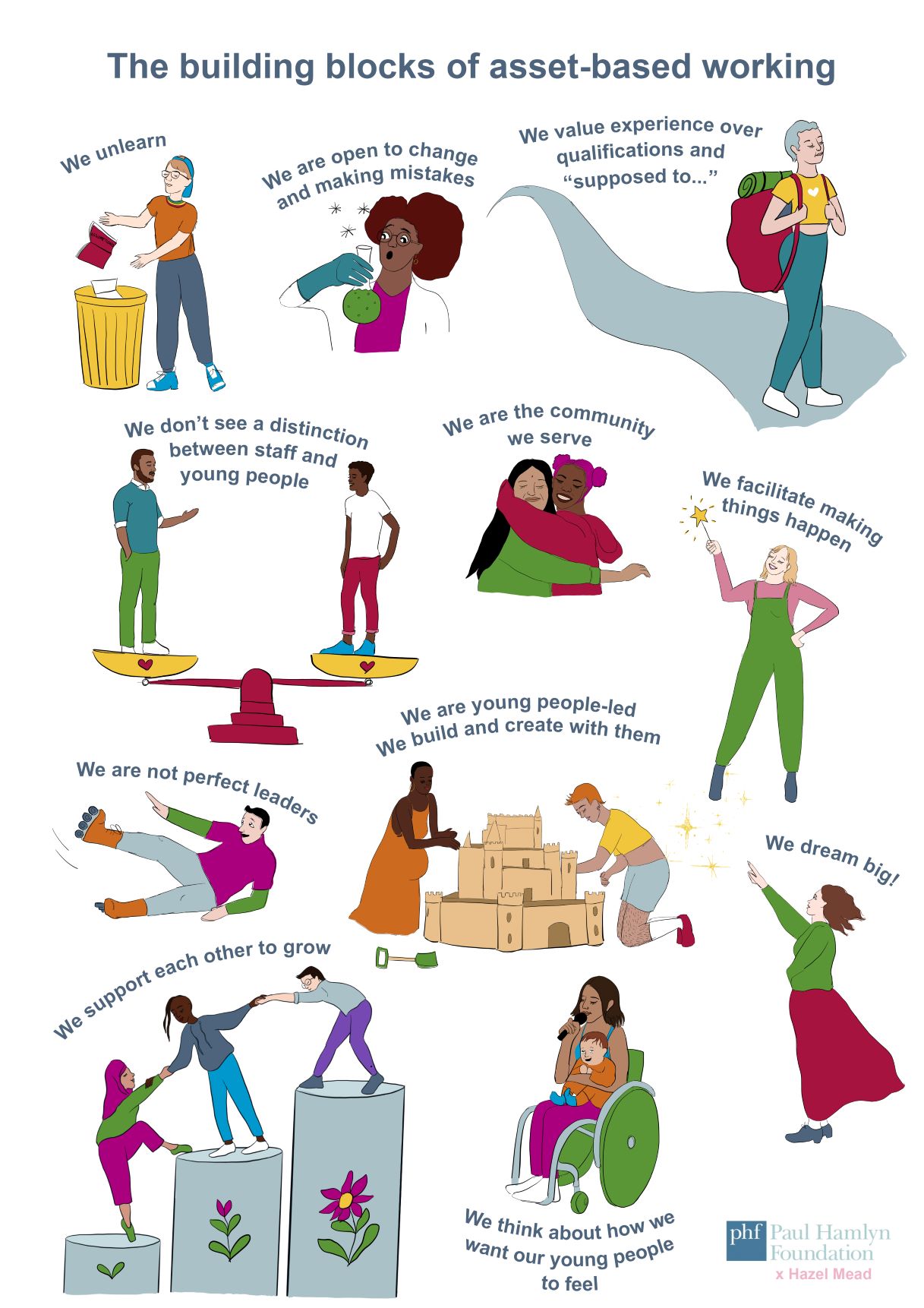Paul Hamlyn Foundation (PHF) have published our research into what asset-based working looks like in youth settings. A link to this can be found here:
The core principle of asset-based working is that everyone has strengths, gifts or ‘assets’ that should be as a starting point for service delivery, community development and/or organisational development. Asset-based approaches are often contrasted with ‘deficit-based’ work which focuses on needs, problems and issues rather than strengths.
PHF knew that the language around ‘asset-based working’ can be off-putting and jargony, which is why they asked us to get underneath the skin of what asset-based working looks (and feels) like in practice.
We created 3 case studies and used an asset-based research methodology, inviting young people and practitioners to tell us their stories, their way.
We learned so much from the process and put together a Reflective Report to share our insights and reflections from across all 3 case studies. In this report we encourage funders to:
- Avoid the temptation to rigidly define ABW and see ‘good’ or ‘bad’ practice. What works well in one organisation might not work well in another. o
- Recognise organisations and projects who take a risk. Sometimes things will go wrong. That is how organisations grow.
- Understand that ABW doesn’t fit within traditional output and outcome frameworks. The Theory of Change for asset-based practice will (and should) evolve. Theory of Change thinking is helpful but rigid output targets are not.
- Remember that embedding this practice takes time and should be built into every project/programme. If an organisation needs to spend several months at the beginning of a project to listen to their young people and build trust, that should be encouraged.
- Recognise that a variety of options for young people to engage with a programme is a sign that an organisation trusts their young people to have choice and control over their own journeys. Having a variety of service options/activity types could be an indicator of ABW.
- Be sensitive to people sharing experience and stories. Sharing personal stories need not be a prerequisite for receiving funding. Organisations will often share stories, even if it makes them uncomfortable, if they think it will help to secure funding. Recognise experience as an asset and renumerate where possible.
Thank you to GirlDreamer, OTR Bristol and The Warren Project for working with us on this project. Thanks also to Hazel Mead, the artist who helped to bring our research to life.



